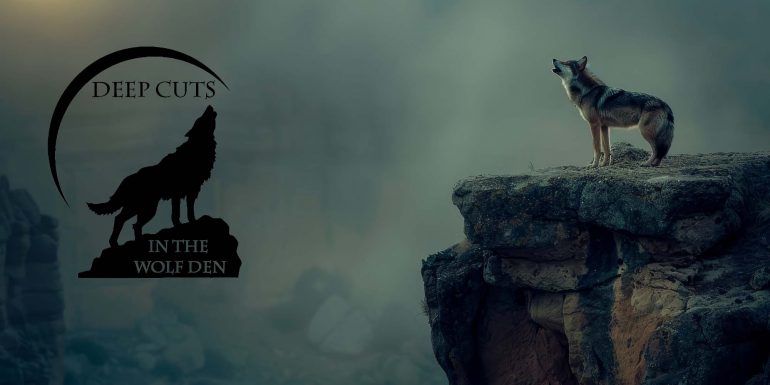
Deep Cuts in the Wolf Den
Get ready to experience the magic of Deep Cuts in the Wolf Den
closeBluesWave Radio (192kbps mp3) High Quality Audio for Desktop and Mobile Devices
BluesWave Radio (320kbps aac) Very High Quality Audio for Desktop Devices
BluesWave Radio (320kbps mp3) Very High Quality Audio for Desktop and Mobile Devices
BluesWave Radio (Flac with metadata) CD quality audio
BluesWave Radio (96kbps Ogg/Vorbis) High quality audio with medium bitrate
 play_arrow
play_arrow
BluesWave Radio (128kbps aac) High Quality Audio for Desktop and Mobile Devices


Space Oddity is the second studio album by David Bowie, released on 14 November 1969 by Mercury, a subsidiary of Philips Records, and produced by Gus Dudgeon and Tony Visconti.
Following the commercial failure of his self-titled debut album in 1967, Bowie acquired a new manager, Kenneth Pitt, who also took on a promotional film in the hope of broadening the artist’s audience. For the film, Bowie wrote a new song, titled “Space Oddity”, a story about a fictional astronaut. The song landed Bowie a contract with Mercury Records, who agreed to finance the production of a new album, with Pitt hiring Tony Visconti to produce. Due to his dislike of the song, Visconti hired engineer Gus Dudgeon to produce the recording of the track for release as the lead single, and also took over the production of the rest of the album.
Recording for the new album began in June 1969 and continued until early October at Trident Studios in London. The album featured contributions from Herbie Flowers, Rick Wakeman, Terry Cox and the band Junior’s Eyes, among others. Departing from the music hall style of his first album, Bowie wrote folk rock and psychedelic rock songs. Lyrically, the songs contained themes from events in Bowie’s life at the time, including his former relationships and his participation in various festivals. The track “Space Oddity” was released as a single in July 1969, reaching No. 5 in the UK later that year, giving Bowie his first commercial success.
Biographer David Buckley writes that Bowie continued to reflect the prevailing ideologies and musical trends of the time, rather than developing a distinctive music of his own. Kevin Cann finds the album’s musical terrain to include a fusion of acoustic folk tendencies with a growing interest in electric rock.
“Space Oddity” is a largely acoustic track that rises to the eerie tones of the composer’s stylus, an electronic pocket instrument. “Unwashed and Somehow Slightly Dazed” reflects a strong Bob Dylan influence, with its harmonica, raspy guitar sound, and vocals.
“Letter to Hermione” was a farewell ballad for Bowie’s ex-girlfriend Hermione Farthingale, who is also the subject of “An Occasional Dream,” a soft folk tune reminiscent of the singer’s 1967 debut album.
“God Knows I’m Good,” reflects the story of a shoplifter and also recalls his earlier style.
“Cygnet Committee” has been called his first true masterpiece. It is considered the most indicative piece of Bowie’s future as a composer. Its protagonist is a messianic figure who breaks down barriers for his younger followers, but finds that he has only provided them with the means to reject and destroy him.
“Janine” was written for a girlfriend of Bowie’s childhood friend George Underwood.
“Wild Eyed Boy from Freecloud” is influenced by Buddhism and is presented in a much more extended form compared to the original guitar and cello version on the B-side of the single “Space Oddity”.
“Conversation Piece”, an outtake from the recordings, has been described as a beautiful melody with moving lyrics, addressing familiar Bowie themes of alienation and social exclusion, which was first released as a B-side single in 1970.
From this excellent album I select the eponymous “Space Oddity”.
Tracklist
A1. Space Oddity 5:13
A2. Unwashed And Somewhat Slightly Dazed 6:09
A3. Letter To Hermione 2:30
A4. Cygnet Committee 9:22
B1. Janine 3:22
B2. An Occasional Dream 2:54
B3. The Wild Eyed Boy From Freecloud 4:46
B4. God Knows I’m Good 3:17
B5. Memory Of A Free Festival 7:06
Written by: Dimitris Sigalos

Get ready to experience the magic of Deep Cuts in the Wolf Den
closeBroadcasting from Athens Greece, BluesWave Radio plays the best selections from all the genres of Blues and Rock music, ranging from the 60’s to today.
With a a passion for radio we’ve been curating the perfect playlists and creating great shows, for your work, leisure or relax time. You can trust BluesWave Radio for your favorite music 24/7!


Musical works are offered only for private use of each visitor/user and any further use/exploitation under any circumstances is forbidden without the permission of “autodia” and GEA-GRAMMO.

Post comments (0)